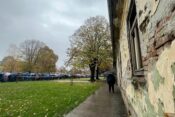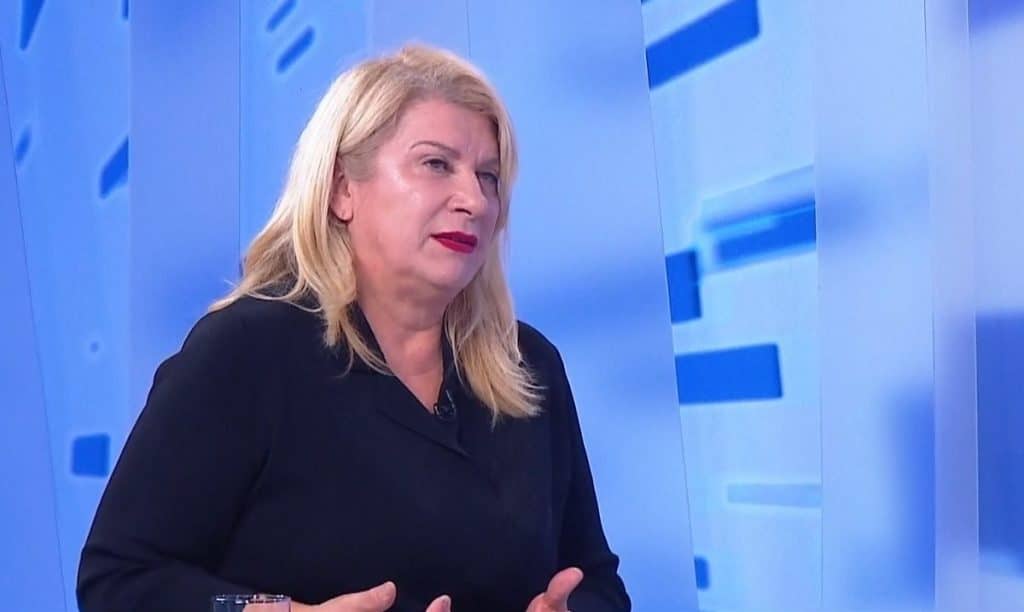Former Minister of Justice Vesna Škare Ožbolt was a guest in the Newsroom where she spoke about the memory of the victims of Vukovar and Škabrnja and about the situation in which Vukovar is today and what steps are necessary to turn that city towards the future.
The former minister commented on the arrival of the Deputy Prime Minister Anje Šimpraga in Škabrnje and the incident when several locals turned their backs on her.
“It happened because everything was reduced to protocol matters. The Deputy Prime Minister should come to Škabrnja in the rest of the year to talk to the people, to see how she can help them, in what way she can help solve all the unresolved issues, such as the issue of the missing. I believe that this initiative is absolutely necessary in order to avoid situations like this”, believes the former minister.
To the question whether there can be reconciliation while there are still missing Vesna Škara Ožbolt answers:
“The 31st the year has passed and a lot can be done. We need to talk to Belgrade every day, put pressure on them. Communicate constantly, and that should be a daily job, and that should be worked on intensively,” says the former minister, who believes that the archives of the JNA should also be opened.

He also adds that the authorities in Belgrade do not want to open the archives of the JNA, but also that politics can do a lot if they want to and have the will. He also adds that much could be done through bilateral negotiations and that Serbia should not be pressured through the European Union, because Serbia is in no hurry to join the EU, so that would not even make sense.
“The most difficult thing is to lead a bilateral story, but it is a direction that could lead to results,” says the former minister.
When asked whether, in the past six years since HDZ and SDSS joined the coalition, there has been an improvement in the position of members of the Serbian national minority in Croatia, improvement in relations between Serbs and Croats, Škare Ožbolt answers:
“I think it all got into a rut on a more perceptual level than real. Of course, a lot was done, the only question is whether more could have been done. That activity should have been much more dynamic”, believes Vesna Škare Ožbolt.
He adds that everything should be done for the sake of those who died in the defense of Vukovar, for the sake of their families, who are generationally damaged, because they did not have the life they could have had.
When asked how much the memory of the victims of Vukovar is cherished, the former minister answered that the educational system should incorporate much more material from the Homeland War than we have now.
“I think it should be a part of mandatory field lessons during schooling,” says the former minister and adds that a culture of peace should be built so that younger generations have knowledge and understanding of what was happening in our country.
“We see the same scenes in Ukraine that happened here. Unfortunately, people don’t learn,” says the former minister.
She also commented on the existence of separate schools in Vukovar.
“I think it’s a great shame. Ghettoization is being created. This is bad. While I was leading a peaceful reintegration, I did not allow segregation to take place. Unfortunately, after 2000, these demands were relented. Practically speaking, the idea was that Serbs had their own education from kindergarten to college, and I think that is an extremely bad story. Young people should be brought together. The solution is a joint school with a special program,” says Vesna Škare Ožbolt.
She also spoke about education in Serbia, where they teach that there was a civil war between Croats and Serbs in Vukovar and that a war crime was committed against civilians without any special explanation.
“When you look at some verdicts in The Hague that say that there was a civil war in Vukovar, and not an attack by Serbia and Montenegro on Croatia, then nothing surprises me,” says the former minister. He adds that there is only one truth, the brutal aggression was carried out by Serbia and we should stop looking for some sort of compromise solution.
She also commented on the investigations of war crimes in Croatia, as well as the lack of an indictment for the destruction of Vukovar, and noted that the chief state attorney should be asked why there are no indictments. She added that Croatia knows where the commanders responsible for the destruction of cities, persecutions, and killings are located, and that it had organized courts that were supposed to lead these processes, and notes that it is not clear to her why these processes have not been started.
“Croatia will only start the trial in absentia for the crimes in Škabrnja next year, and it is not asking for the extradition of those commanders,” the former minister notes.

She commented on crimes against raped women.
“Numerous women were raped, and Croatia only passed a law during the government of Zoran Milanović in which these women are considered war victims,” said the former minister, adding that this law is unique and has now been copied by Ukraine.
She also mentioned that during the aggression, Croatia was in a much more difficult situation than Ukraine. She recalled the events from the beginning of the nineties, when practically the whole of Croatia was occupied, given that there was a JNA garrison in practically every village and we were prevented from defending ourselves.
“The international community did not want to support us until the fall of Vukovar. Then there was a reversal,” reminded Vesna Škare Ožbolt.
She also commented on the arrival of the prime minister in Vukovar, and the president in Škabrnje, and the opposite situation just the day before.
“It’s good because both events should be monitored”, the former minister believes and adds that in previous years there was always criticism that the top government did not come to Škabrnje.
Track N1 via Android apps | iPhone/iPad and social networks Twitter | Facebook | Instagram.

